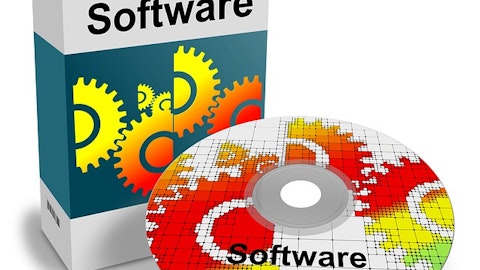And we know that their batch oriented data or architectures limit their ability to deliver real-time experiences. And that new reality is creating an even higher opportunity costs for companies who are remaining either on the legacy marketing clouds or continuing to use siloed point solutions. We believe that in order to take full advantage of what AI has to offer, you need to be comprehensively integrated to the user journey and executing in real-time at scale and that’s just where Braze has been the whole time. And so, we’re really excited to see. The market is moving toward us. The external community is really picking up on this. We’re seeing adoption and repeat adoption of the newest generative AI features and we’re just really excited to continue to see that momentum build.
Ryan MacWilliams: Yes, I agree, I think this definitely benefits to those that have shown product velocity over time. And for Isabelle, solid RPO performance in the quarter. Were there any deals or push out of 4Q into 1Q? And for new bookings, have you seen any signs of stabilization or improvement since the end of the quarter?
Isabelle Winkles: Yes, thanks for the question. So look, I think the overall evolution of the macro has not really changed. And what we’re seeing in terms of elevated deal scrutiny and those elongated deal cycles, it is persisting. And so, we started talking about this last quarter, We are — we continue to see that evolve and so there are deals from Q3 that pushed into Q4, deals from Q4 that pushed into Q1, and there were deals from Q1 that are pushing into Q2. So I think we’re seeing some of that persist. But I do want to be clear that, that is embedded in our guidance philosophy and so that scenario is taken into consideration. And then, sorry, your second question?
Ryan MacWilliams: Just to say, in the quarter, have you seen any stabilization or improvement on new bookings?
Isabelle Winkles: Yes. So we’re continuing to approach this. It was sort of a risk-adjusted view, but we are seeing some of the benefits of the investments that we’ve made to continue to improve and enhance overall productivity of our sales force. And so we are definitely seeing stabilization in those numbers. I wouldn’t say that we’re quite back where we want to be, but we are certainly having more productive conversations and certainly happy about the progress that we’ve made in the trajectory that we’re on.
Ryan MacWilliams: Appreciate. Thank you.
Operator: And our next question comes from Gabriela Borges, Goldman Sachs.
Gabriela Borges: Good afternoon, and thank you, Bill, I wanted to ask on the longer-term implications of generative AI and what customers are telling you the way it’s going to impact their budget. In other words, what are you hearing in terms of customer spending intentions on marketing, technology, and software, this marketing people versus other areas of the budget and is it actually leading to customers potentially thinking about taking up their budgets for marketing software over the medium term?
Bill Magnuson: Yes. So I think about the marketers that are actually canceling keyboard in Braze as complementary investment that a brand needs to make into achieving customer engagement goals. And in some cases, when you look at the total cost of ownership of obviously software like Braze, one of the things that we’ve always tried to do is to make the individual marketer or the smaller team, more and more productive over time. And the more that we can do that, the more people can move from whether it’s a basic email marketing strategy that they’re maybe running before or batch and blast approach to things, maybe they’re not putting in rigorous data analysis or maybe they’re running on a six week or a three month cycle where they refresh content rather than getting down to the more agile teams that we see today.


